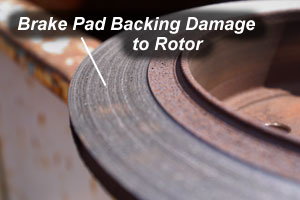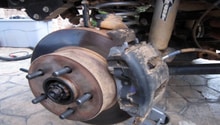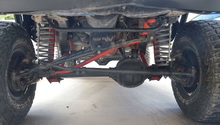Jeep Grand Cherokee 1999-2004: Engine Noise Diagnostic Guide
Nothing is scarier than irregular engine noise in the Jeep Grand Cherokee. This guide will give you an idea of how you can diagnose different engine sounds.
This article applies to the Jeep Grand Cherokee WJ (1999-2004).
The Jeep Grand Cherokee should always have a smooth engine sound. When you hear a new sound coming from your engine that you're not used to hearing, this means something is wrong. Since the engine's components are all connected, one bad part could affect other parts, which will cost you much more to fix or replace. The best thing to do is to diagnose engine sounds as soon as you hear them to give you the chance to fix or replace the faulty part before it causes anymore damage. Read on to learn about the different noises in your engine and what they are associated with.

Materials Needed
- Jumper cable
- Jack and jack stands
- Tire iron
Step 1 – Clicking noise
The clicking noise could mean one of two things:
If you're trying to start your car and instead of it starting you get clicking noise, this means your battery is dead. It simply means it doesn't have enough juice to get the car cranking. Jumping the battery using jumper cables usually solves this issue. From there, you can take your battery to your nearest auto shop and most of them would recharge it overnight free of charge. If the battery can't keep the charge, then a new battery is in your future, which costs between $100 to $250.
Another clicking or tapping noise happens as you're driving. If the clicking noise gets faster as you accelerate, this could mean your oil pressure is low, or you have a worn component in the upper valve train. The first thing you need to do when you hear that is to check your oil's dipstick. If the oil is low, add some immediately. If the oil's level is proper, take your car to your nearest auto shop so they can check for any further damage.

Step 2 – Squealing noise
Squealing when accelerating is an embarrassing sound, and you shouldn't wait until people complain about the noise your car is making. This sound means your fan belt is in trouble. Check your fan belt to see if it's loose, which will allow the fan pulley to turn faster than the belt itself, causing that noise. If the belt is in good condition, tighten it. If it's worn and cracked, replace it.

Step 3 – Knocking noise
The knocking noise in your Jeep is not an opportunity knocking, it's plain bad news. This simply means the bearings inside your engine are worn. The bad news is the fact that it's inside your engine. So if you were planning on replacing it yourself, be sure to think again. Your best bet is to take it to an auto shop to have them replace it and seal your engine back.

Step 4 – Grinding noise
A grinding noise has been misunderstood as engine issues. The brakes are notorious for making various grinding noise when the brake pads are too thin, or when the brake rotor is rusted or cracked. Check your brakes by removing the wheel and looking at the pads as well as rotors. This is a much easier fix than most of engine issues.

Figure 4. Worn vs new pads. 
Figure 5. Worn rotor.
Related Discussions
- Motor Knocking Sound - CherokeeForum.com
- Ticking Sound - CherokeeForum.com
- Engine Tapping Noise - CherokeeForum.com






